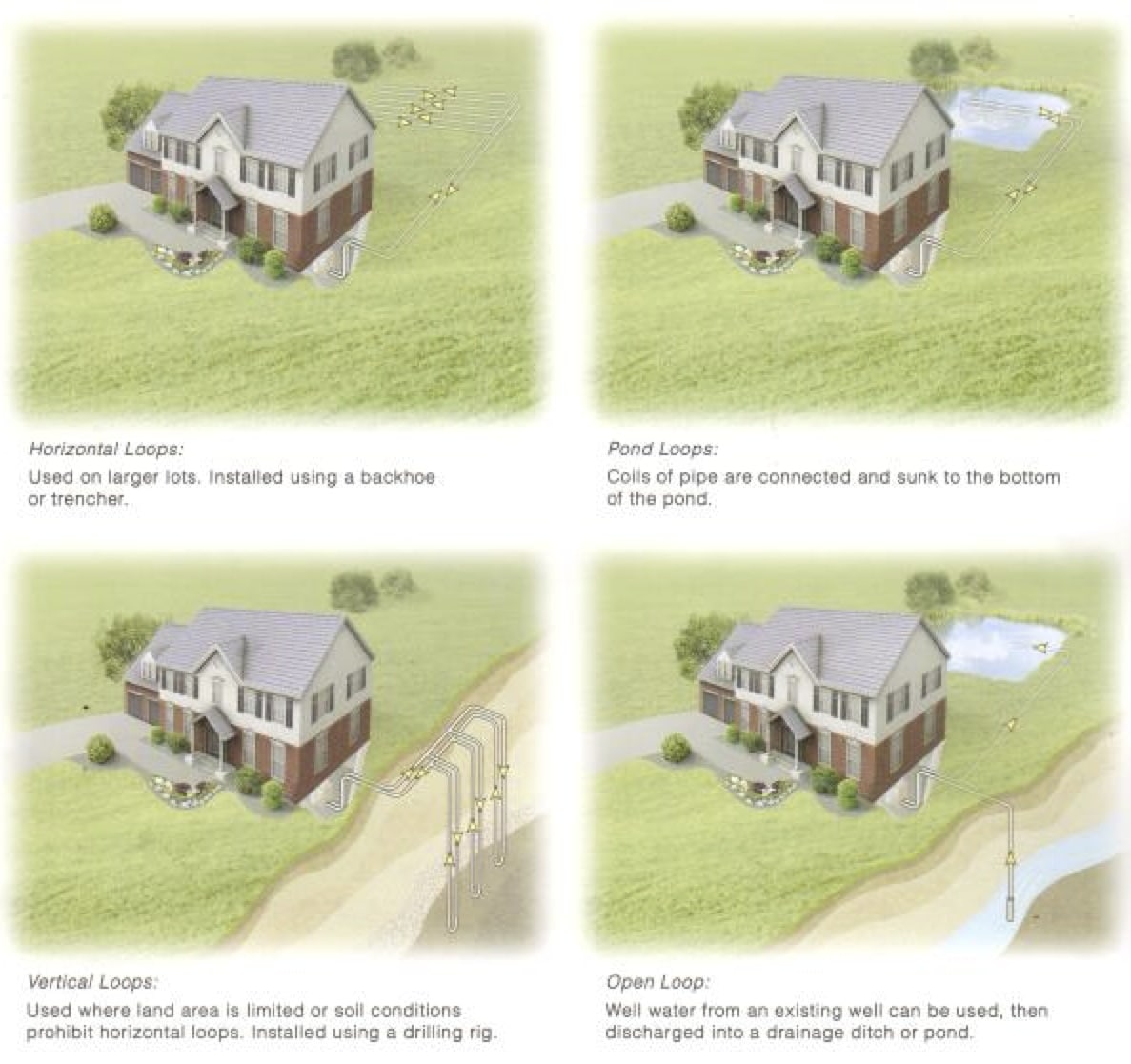Why to Consider a Geothermal Heating and Cooling System for Your Home
Whether its to lower their utility bills or to help take care of the planet, I’ve noticed more and more of our clients around Indianapolis asking about efficient heating and cooling systems. At Homesense, we install an extremely efficient HVAC system that uses renewable geothermal energy. But before we do anything, we’re always intentional about walking our customers through the unique design differences in geothermal heating and cooling system, as well as the overall cost of ownership.

Comparing geothermal heating and cooling system to Conventional HVAC Units
On typical air conditioners and heat pumps—also called air source heat pumps—the unit sits outside the home and exchanges heat with the outdoor air. In the summer, it unloads heat from your home to the already hot outside air, and the exact opposite in the winter for air source heat pumps.
Alternatively, the compressor on geothermal systems typically sits inside the house, safe from the elements, and exchanges heat with water from the ground—either from a well or a loop. The temperature of the earth and the water underneath (i.e., well water) stays around 55°F year round in central Indiana. And most systems in this part of the country use a loop of polyethylene pipe installed under the lawn to circulate water until it also reaches 55°F. One way to understand this is to imagine how easy it would be to heat and cool your home if the outside temperature was always 55°F.
Comparing Costs of Geothermal Systems Versus Other HVAC Units
Most geothermal systems have variable speed fans and two-stage compressors that run more efficiently and make the home more comfortable. Below, we’ll compare the costs of (1) a geothermal system, (2) a conventional system, and (3) a conventional system with a variable speed fan and two-stage compressor. By comparing the conventional system’s operating cost to your own, you can get an idea of what you can expect to save with the geothermal system.
Just to set the stage, all estimated costs will be based on the following criteria:
- Operating costs based on typical utility rates and weather in Central Indiana
- Installation prices based on the market averages of systems we sell, as well as bids from competitors
- Sample home built after 1990, with 3,000 square feet and an additional 1,000 square feet of finished basement
COST OF OWNERSHIP OVER 10 YEARS
| Conventional HVAC System |
Conventional HVAC System w/variable speed fan & 2-stage compressor |
Geothermal System |
|
| Utility Costs | $25,000 | $18,000 | $8,000 |
| Purchase/Installation | $6,000 | $9,000 | $17,500* |
| TOTAL COST TO OWN: | $31,000 | $27,000 | $25,500 |
*The geothermal unit initially costs $25,000 to purchase and install. However, there is a federal tax credit available until 12/31/2016 for up to 30 percent of the cost to buy and install the unit—bringing the cost down to $17,500.
Conventional systems have an average life span of 15 years, whereas geothermal systems average 25 years of use. If you’re in a home you plan on staying in for longer than 15 years, you’ll have two conventional systems to buy for every one geothermal system. And so, extending the above cost comparison out for 20 years of us:
COST OF OWNERSHIP OVER 20 YEARS
| Conventional HVAC System |
Conventional HVAC System w/variable speed fan & 2-stage compressor |
Geothermal System |
|
| Utility Costs | $50,000 | $36,000 | $16,000 |
| Purchase/Installation | $12,000 | $18,000 | $17,500* |
| TOTAL COST TO OWN: | $62,000 | $54,000 | $33,500 |
Environmental Benefits of geothermal heating and cooling system
While the above data indicates that a geothermal system may be the best financial investment, our customers don’t always choose this system just for the savings.
Geothermal systems are considered by the EPA and U.S. Department of Energy as the most environmentally friendly way to condition the air and water in your home. Unlike the conventional HVAC systems mentioned above, geothermal systems:
- Do not emit greenhouse gas, such as carbon dioxide and carbon monoxide, that pollute the air
- Require limited electricity to run
Between a lower cost of ownership, a more comfortable home, and a smaller impact on the environment, geothermal systems make so much sense. Be sure to give us a call at 317-203-8149 to talk more about the benefits of a geothermal system for your home.




